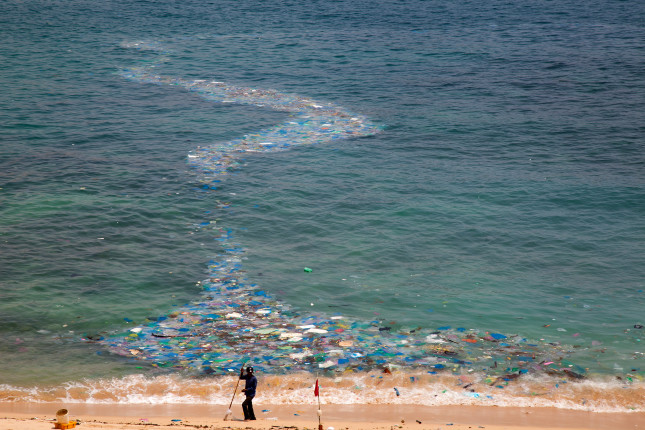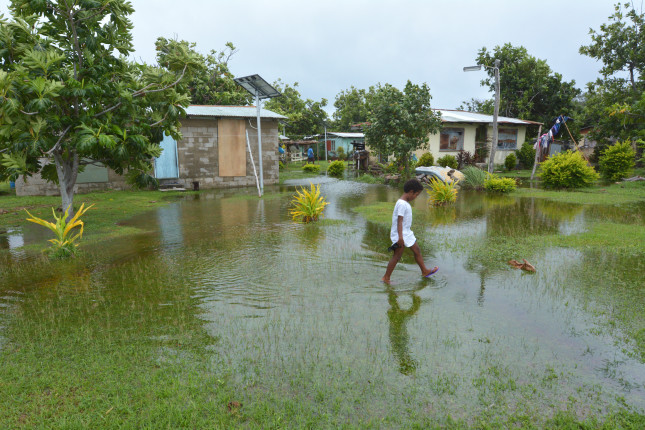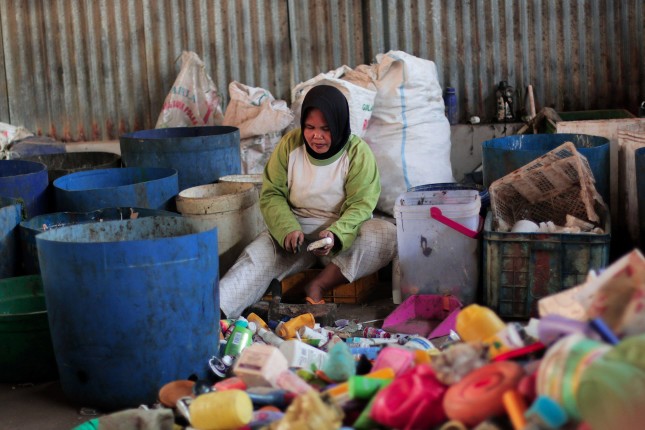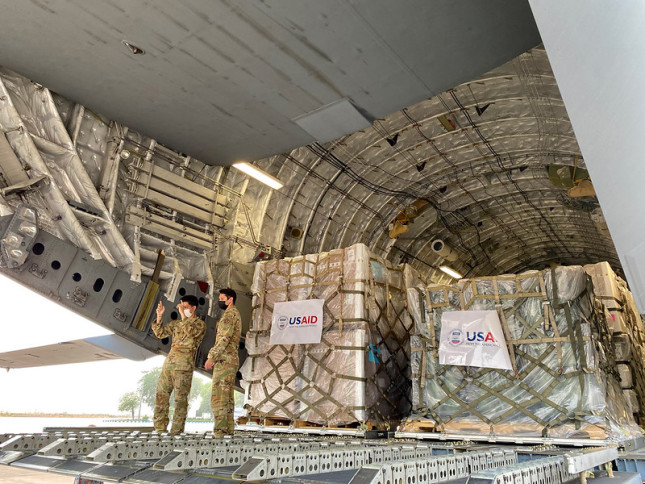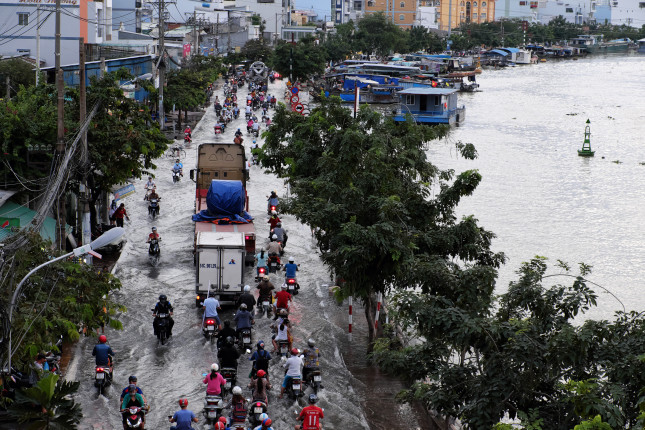-
Decarbonization in the United States and China: Fast and Furious Enough?
›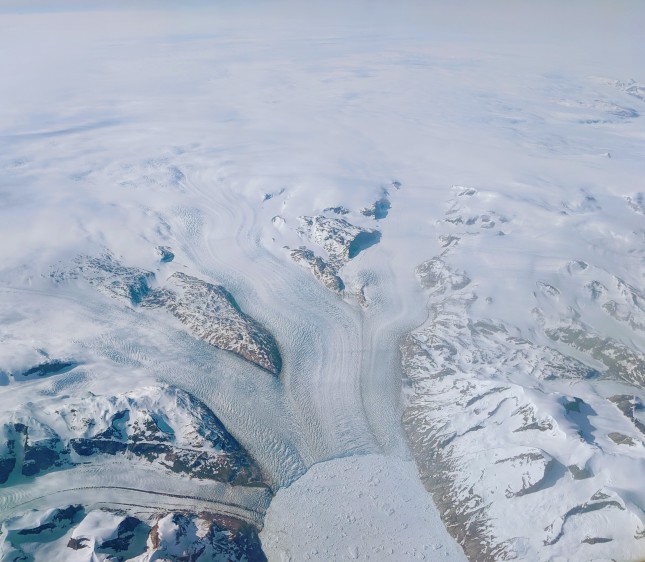
A “code red for humanity”— that is how UN Secretary General António Guterres described the future climate scenarios laid out in the International Panel on Climate Change’s Sixth Assessment Report. According to the report, CO2 in the atmosphere has reached levels unseen in 2 million years, amplifying floods, droughts, and other environmental catastrophes around the world.
-
Developing Data-Driven Solutions to Vietnam’s Ocean Plastics Problem
›
In December 2020, Vietnam’s Prime Minister Nguyễn Xuân Phúc signed the country’s National Action Plan for Management of Marine Plastic, setting an ambitious goal for the government to reduce marine plastic litter by 75 percent by 2030. Recent surveys indicate that plastics are the most prevalent and dangerous form of waste choking Vietnam’s beaches and waterways. Whether polystyrene, discarded nets, or mismanaged single-use plastics, these items are not just an eyesore, but they imperil the local ecosystem and fishing industry in Vietnam.
-
Food as a Pathway to Peace: COVID, Climate, and the Hunger-Conflict Nexus
›
“We produce more than enough food for the world’s population, but more and more people have been growing hungry in recent years,” said Kelly McFarland, Director of Programs and Research at the Institute for the Study of Diplomacy (ISD) at Georgetown University, during a panel discussion on COVID, Conflict, and Climate co-hosted by ISD and the Stimson Center’s Global Governance, Justice & Security, and Food Security Programs.
-
Desperate for Hope? Linking Human Well-Being and Climate Solutions is a Way Forward
›If raging wildfires, extreme drought, and superstorms haven’t made it clear, the latest IPCC report tells us in plain language: the world is poised for worsening climate impacts over the next 30 years. The report’s release—during an unprecedented pandemic and natural disasters that magnify the connections between climate, health, livelihoods, and human well-being—is a grim reminder of the fragility of life on Earth. There is hope, however: the winding links between climate, health, and well-being also present tremendous opportunities. What if, collectively, thought leaders, negotiators, practitioners, and policymakers in the climate, health, business, and international development communities could do a better job of advancing solutions that address these crises simultaneously? When climate, poverty alleviation, and human well-being are addressed together, a vision of a better future emerges like a beacon in the night.
-
Climate Crisis Exacerbates Military Legacy Contamination
›
This summer, climate-induced heat waves ignited landmines and unexploded ordnance buried in the soils around the Middle East, killing people and causing wildfires. Warmer waters are speeding up erosion of sunken battleships laden with degrading munitions. A melting ice sheet on Greenland has exposed thousands of barrels of toxic waste at abandoned U.S. military bases.
-
The Apps Helping Indonesia’s Waste Collectors
› -
International Foresight Takes Flight: OECD-DAC Led Foresight Community Grows and Spotlights New Cooperation Scenarios
›Guest Contributor // September 14, 2021 // By Steven Gale, Ana Fernandes, Krystel Montpetit & Nicolas Randin
The world needs strategic foresight now more than ever, and not just because of the COVID-19 global pandemic. Mounting climate crises across the globe underscore the need—blistering “heat domes” and extensive wildfires across the parched United States West, catastrophic floods of unprecedented scale in Germany and Europe, and more rain in just twenty-four hours in Zhengzhou China than typically falls over the course of an entire year. Scientists warn that for the first time, deforestation now threatens the capacity of the Amazon forest to absorb carbon dioxide. Foresight is no longer a luxury and climate change is no longer a distant threat.
-
The Challenges of Climate Change in an Urbanizing World
›
The recently released draft report of the Intergovernmental Panel on Climate Change (IPCC) lays out in no uncertain terms that we face an insurmountable challenge in addressing climate change and its impacts. One shocking takeaway is that sea-level rise is now thought to be irreversible. Indeed, rising temperatures and changing weather patterns threaten to send some cities under water, while causing others to dry up. These opposing challenges increasingly threaten the lives and livelihoods of people in many countries as rapid urbanization is making cities even more densely populated. Floods and droughts threatening the world’s cities will force governments of the world to reevaluate the quality of their infrastructure, their disaster management strategies, and of course, their environmental footprints.
Showing posts from category climate change.


